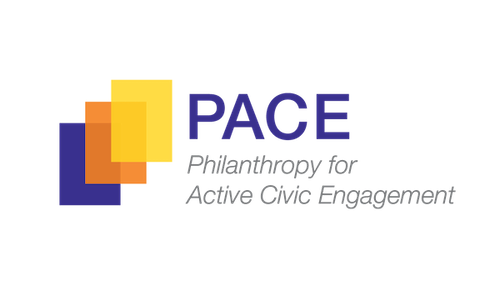Upholding Democratic Values
U.S. democracy was crafted with careful recognition of the role that faith communities can play in civic life. Over the ensuing centuries, the religious freedoms and liberties enshrined in the constitution have resulted in diverse, thriving religious communities in every corner of the nation. This freedom has also allowed many of those religious communities to grow, evolve, and explore how their beliefs and practices intersect with democratic, civic, and social values.

EXPLORE THE EVIDENCE
Faith communities have long been at the forefront of cultivating a strong sense of responsibility towards one’s community, as well as encouraging active participation in the democratic process. Through their teachings and practices, faith communities provide a framework for individuals to develop the skills and values necessary for engaged citizenship.
People who identify as religious vote, volunteer, and contribute philanthropically in significantly greater numbers than other Americans.
Religious and spiritual leaders and citizens are active advocates for policy and programmatic reform addressing civic access, participation, and inclusiveness.
Faith-inspired organizations provide on-ramps, guidance, and vehicles to exercise individual and collective civic power.
Religious and spiritual communities offer inspiration and accountability for individuals’ ethical behavior. They promote moral self-reflection, humility, and improvement. They compel care for neighbors and the earth. They have wisdom on how to forgive and reconcile so that individuals and communities can evolve and grow.
Faith-inspired institutions support development of civic agency by providing opportunities for people to put their ethics into practice. They are training grounds for participation in civil society. They provide education, guidance, and a normative culture to promote civic character development, especially for youth.
Religious and spiritual leaders often serve as role models and guides for leading an active and principled civic life.
Evidence that demonstrates faith’s impact on civic behaviours and character development
If you have evidence to add, please send it to us.
Case Studies
In the face of political violence, one group recruits ‘poll chaplains’
‘Makes a difference’: More Muslims in Tennessee are voting, candidates are paying attention
Podcast: Collage: Defining & realizing the role of faith in the public square
Six Projects Yield Evidence Supporting the Impact of Faith Communities on Civic Life
EXEMPLARS
Faith-inspired organizations that are promoting civic behaviors and supporting civic character development.
(* denotes FIAD partner)
Addressing civil rights, promoting equity, and ameliorating oppression
Religious and spiritual values have long served as a galvanizing force, mobilizing millions in pursuit of justice and dignity for all. By supporting faith-based organizations and leaders who are working for justice, funders have the opportunity to be part of a movement that is both deeply rooted in history and uniquely poised to shape a more just and equitable future for democracy.
Religious leaders and communities often provide pivotal inspiration and support for civil rights as an explicit mandate of their religious and/or spiritual commitments. The Black Church and its leaders have and continue to play a unique institutional role in advancing racial equity.
Faith-inspired institutions and leaders are often the first community members to embrace immigrants and refugees, and may be their first connection to any American institution. Many immigrant resettlement groups have been started by faith-based groups that offer sanctuary, training and pathways to citizenship.
Religious institutions contribute significantly to America’s social safety net and network of care for the unhoused, the poor, victims of natural disasters, and other vulnerable communities.
Spiritual resources (such as knowledge, ethical values, traditions, institutions, and practice) have the potential to shape policy and prompt societal transformation in uniquely powerful ways.
Faith-inspired organizations can act as foils for authoritarianism, white supremacy, and political violence.
Religious and spiritual communities are proximate to people, and that proximity affords them the ability to be deeply rooted in, influenced by, accountable, and responsive to a particular group of people and their pain and deepest hopes.
Religious communities provide motivation, frameworks, and models of collective benefit and care for others.
Religion and spirituality connect us to our place on earth, promoting appreciation and care for the environment.
Evidence that demonstrates faith's impact on civil rights and equity.
If you have evidence to add, please send it to us.
Analysis
A Shared Future: Faith-Based Organizing for Racial Equity and Ethical Democracy
Elevating the Role of Faith-Inspired Impact in the Social Sector
Igniting Change: An Evangelical Megachurch’s Racial Justice Program
Is Philanthropy Taking the Wrong Approach to Addressing Polarization?
Faith Leaders To Join Remembrance Of COVID-19 Victims In U.S.
What Lies at the Intersection of Faith and the Environment
To Tackle the Climate Crisis, Philanthropy Needs to Get Religion
EXEMPLARS
Faith-inspired organizations that are addressing civil rights, promoting equity, and ameliorating oppression.
(* denotes FIAD partner)
MAILING ADDRESS
611 Pennsylvania Ave SE, #372
Washington, DC 20003
